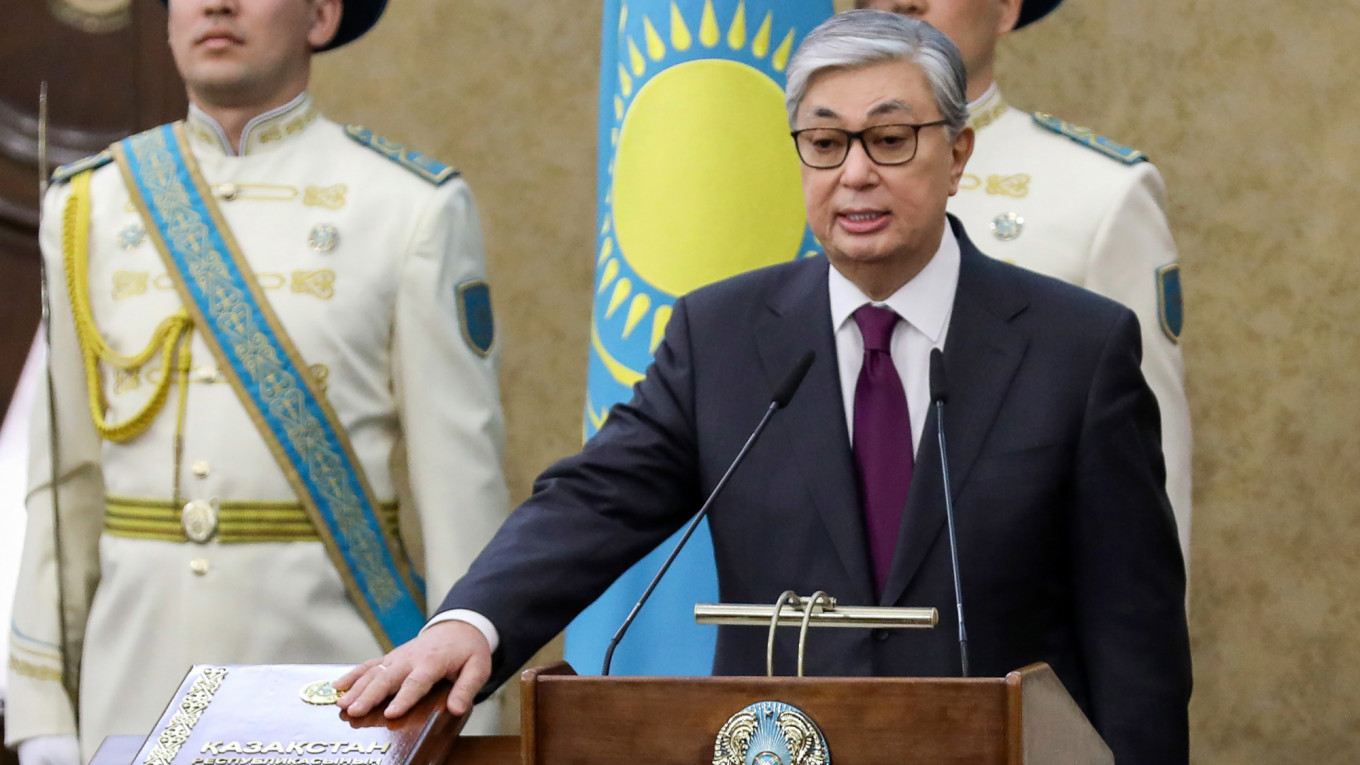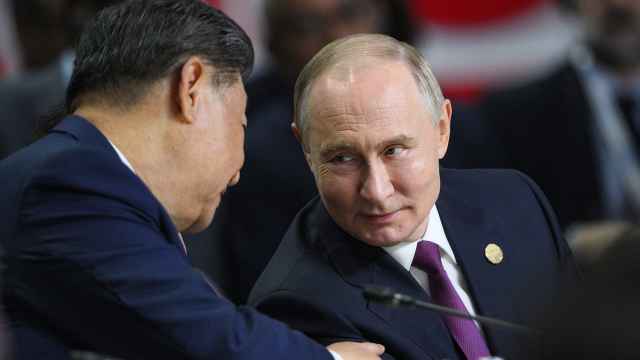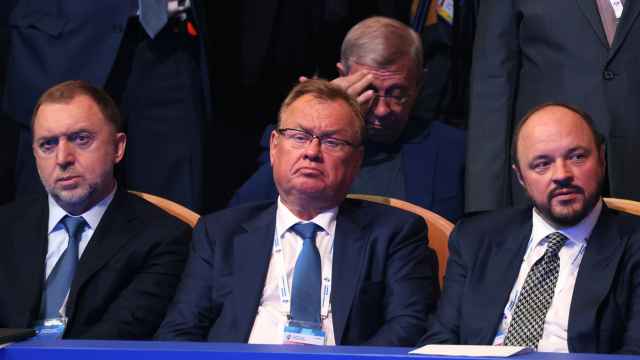Kazakhstan’s citizens are used to hearing from President Nursultan Nazarbayev, who has guided the country for three decades and earned himself the sobriquet “leader of the nation.”
But his March 19 address was explosive: He resigned. The move had long been speculated over, but when it came it still sent shockwaves throughout Central Asia and Russia, the oil-rich nation’s closest ally.
While Nazarbayev might not be president anymore, he has no intention of disappearing from the political scene. He will remain head of Kazakhstan’s security council and his title of “leader of the nation” is for life. This is to be a managed transition, overseen by Kazakhstan’s manager-in-chief, Nazarbayev himself.
Nazarbayev’s status as the central axis of Kazakhstan’s political economy cannot be overstated. He oversaw a managed transition at the end of the Soviet Union, having held the most senior posts in the Kazakh Communist Party in its final years.
He then established its post-independence path, introducing Kazakhification policies while maintaining sectarian and ethnic relations among the country’s diverse population. He also developed the commodities sector into a darling of Western investors, sparking broadly sustained economic growth.
Nazarbayev has long engaged in frequent political reshuffles to stop others from establishing their own power bases. All of Kazakhstan’s parliamentary political parties are directed from the center while genuine opposition is shut out of the political process. The position of politicians depends not on their governance skills but on protecting the current system.
Nazarbayev’s resignation should not be seen as a sign that he wants the system he has developed in Kazakhstan to change. Rather, he is seeking to institutionalize it. As long as he is able to exercise political influence, even from outside the presidential palace, Nazarbayev will remain the country’s dominant political and economic actor.
He has made no secret of this, often speaking of Singapore’s late founder Lee Kuan Yew, who remained the nation’s key decision maker long after he surrendered his formal posts.
Today, Lee’s family remains the most politically and economically influential in Singapore. The system he developed continues to benefit the population despite its democratic deficits. Investors considering establishing businesses in Singapore don’t care much about the dominance of the Lee family, even on the rare occasions when infighting among its members makes international headlines.
Kazakhstan’s commodity-based economy cannot truly be compared to Singapore’s, which relies on its status as a haven of contract law and trade facilitation in southeast Asia. But the dominance of its political family means most foreign investors’ first question about potential business partners or operations in Kazakhstan is how closely they are tied to the elite, and often specifically to Nazarbayev’s family.
Nazarbayev’s relationship with his family is complex. His ex-son-in-law and ambassador to Austria, Rakhat Aliyev, fell from power and eventually died in an Austrian jail cell in what many suspect was an assassination. His second daughter, Dinara, and her semi-estranged husband, Timur Kulibayev, are fabulously wealthy, and one of his grandson’s social media posts have started to raise eyebrows.
Nazarbayev must have been thinking of the Lee family when planning his transition. The waning power of late former Uzbek president Islam Karimov’s family after his death in 2016 – despite the cult of personality around Karimov – will likely have been on Nazarbayev’s mind as well.
His decision to ensure that he can oversee the transition may also have been influenced by the ongoing trials of ex-Malaysian Prime Minister Najib, to whom Nazarbayev is linked through marriage.
Ensuring the continued position of his family — and other Kazakhs in the same bracket of unfathomable wealth such as confidantes Vladimir Kim and Bulat Utemuratov — was undoubtedly a factor in why Nazarbayev decided to initiate a transition.
Acting president Kassym-Jomart Tokayev is seen as a close acolyte — his first move was to rename the capital, Astana, Nursultan.
Tokayev’s anointing, along with the promotion of Nazarbayev’s daughter, Dariga Nazarbayeva, to head of the Kazakh Senate, sets the stage for the Nazarbayev family and its confidantes to continue to dominate political life for a long time to come.
Even for the few whose wealth is not due to handouts from the regime, their ability to retain it and pass it on to the next generation depends on their ties to the corridors of power.
The elite is the only group in the country that could realistically challenge the current system. As the corridors of power are walked by the next generation of Nazarbayev’s family, it sends the message that the elite too will be able to manage an intergenerational transfer of wealth and power. Nazarbayev’s managed transition is meant to send exactly that message.
Nazarbayev’s resignation is a move that some have welcomed as the first time a Central Asian autocrat has given up power, but it should actually be seen as an attempt to institutionalize the current power structure.
If it succeeds, Kazakhstan without Nazarbayev will be just like Kazakhstan with Nazarbayev, as the capital’s new name attests.
A Message from The Moscow Times:
Dear readers,
We are facing unprecedented challenges. Russia's Prosecutor General's Office has designated The Moscow Times as an "undesirable" organization, criminalizing our work and putting our staff at risk of prosecution. This follows our earlier unjust labeling as a "foreign agent."
These actions are direct attempts to silence independent journalism in Russia. The authorities claim our work "discredits the decisions of the Russian leadership." We see things differently: we strive to provide accurate, unbiased reporting on Russia.
We, the journalists of The Moscow Times, refuse to be silenced. But to continue our work, we need your help.
Your support, no matter how small, makes a world of difference. If you can, please support us monthly starting from just $2. It's quick to set up, and every contribution makes a significant impact.
By supporting The Moscow Times, you're defending open, independent journalism in the face of repression. Thank you for standing with us.
Remind me later.








